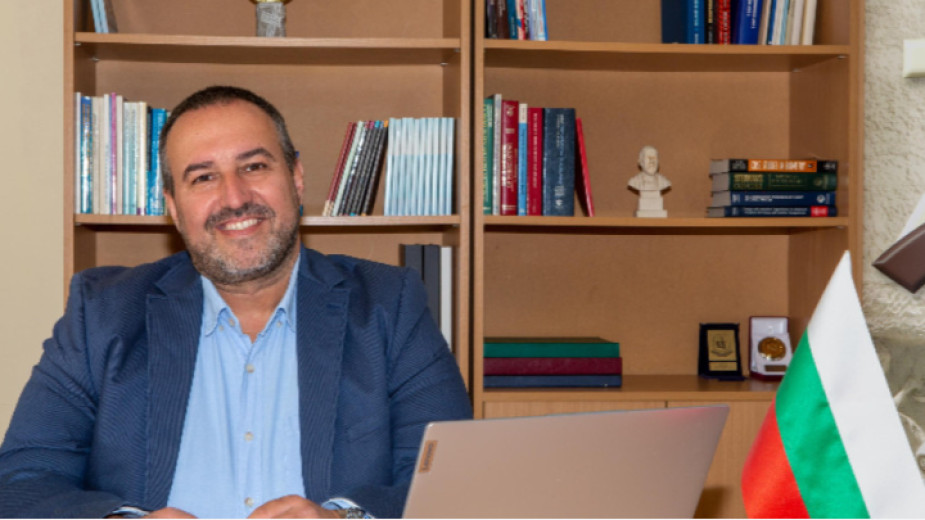The physical and mental health of people, throughout their whole life, is in focus during the days of the European Public Health Week (EUPHW), held in the period May 13–17. The initiative promotes cooperation between medical professionals in Europe, points out the importance of public health and seeks a global approach to solving problems. "Health is a political choice," the campaign tells us, while seeking a different perspective on global issues and encouraging a new generation of health leaders.
But why is the discussion on public health part of the political agenda?

"Health as a political choice means that every action or inaction by politicians has consequences for public health. However, the emphasis must be put on prevention, using modern communication technologies. This is a key in deterring and protecting against rapidly spreading diseases. It saves costs for the healthcare system too," Prof. Dr. Rumen Stefanov, head of the Department of "Social Medicine and Public Health" at the Medical University – Plovdiv says in an interview with BNR Plovdiv.
When we talk about public health, a large-scale problem immediately comes to mind - that of professional burnout. It affects professions of high social importance, such as doctors and teachers. These are people with responsible tasks who strive for a higher qualification and at the same time are devoted to the profession, so they do not have time for good rest and shaking off tension and stress.

According to a study in Bulgaria conducted by the "Podkrepa" trade union, teachers are the most affected by burnout. The union also reports that in Bulgaria the problems of burnout among teachers are underestimated and there are no targeted measures for prevention and rehabilitation. Therefore, they advise everyone to do their own self-diagnosis and limit overloading with stress factors. "A person must be able to be useful first to themselves, to their family, and from there on to be in condition in his profession," psychologist Kiril Kunchev told BNR-Vidin. However, it is important to distinguish between stress and a state of professional burnout:
"Stress is a temporary reaction, most often associated with a specific event in our lives. We experience stress when our mental, physical or emotional reserves exceed our own comfort level. Burnout is a reaction to prolonged and excessive stress that leaves us in a state of physical and mental exhaustion. It causes a cynical attitude towards our work and the people associated with it. We become less effective and more distant from the work and the people around us. When we experience burnout, we often do not believe that the situation can get better and we sink into a sense of hopelessness."

Burnout is much more than feeling overtired. The specialist summarizes the symptoms of this dangerous phenomenon for our health:
"Manifestations of burnout are related to the appearance of a feeling of loss of energy, or emotional exhaustion. Here comes the feeling of negativity and cynicism related to work, as well as reduced professional efficiency. The first symptoms are those of emotional stress - physical fatigue, insomnia, a sense of guilt. However, when the condition is complicated, there is reluctance to go to work, loss of self-control, increased aggression, disturbed eating habits, alienation. Migraines are possible, as well as heart-related chest pain and exacerbation of various chronic diseases. Gradually, interest decreases not only in professional activities, but also in various hobbies. A person shows indifference even to his appearance and to the lives of his loved ones."

Professional burnout is a condition with causes and symptoms linked solely to the workload at work and improperly managed and controlled stress, the expert says in conclusion.
Compiled by: Gergana Mancheva / based on interviews by Zhivka Tancheva, BNR-Plovdiv and Victoria Topalska, BNR-Vidin/
Publication in English: Al. Markov
Photos: Pixabay, BNR-Plovdiv, Pexels
"United We Stand" - Bulgaria's national motto - will be put into action on May 8 by the Bulgarian community in New York City, amid the realities of the times and the distance from home. At 7 pm local time, the Bulgarian Consulate General and the NYC..
"We may be 10 hours behind Bulgaria, but our compatriots on the West Coast of the United States deeply cherish everything that connects them to Bulgaria and their roots," said Maria Samichkova, spokesperson for the Bulgarian Society of Nevada , in an..
"Alphabet of Beer" is the first title I came up with 15 years ago, when I started collecting my beer stories," journalist of the Bulgarian National Radio, connoisseur and exceptional expert on one of the most ancient drinks in the..
"Alphabet of Beer" is the first title I came up with 15 years ago, when I started collecting my beer stories," journalist of the..
"We may be 10 hours behind Bulgaria, but our compatriots on the West Coast of the United States deeply cherish everything that connects them to Bulgaria..
"United We Stand" - Bulgaria's national motto - will be put into action on May 8 by the Bulgarian community in New York City, amid the realities of the..

+359 2 9336 661
